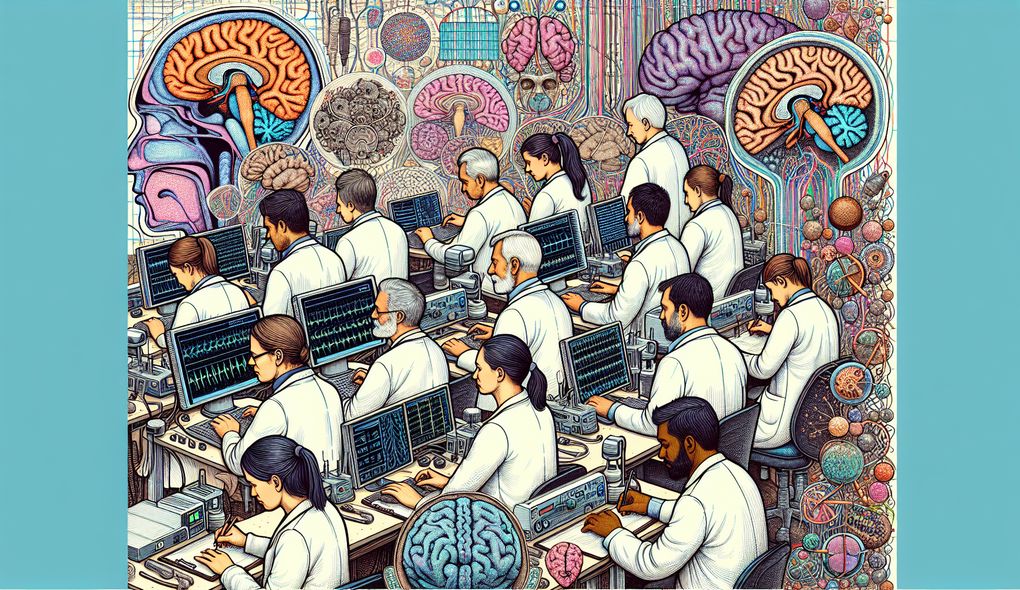Tell us about a time when you had to take a leadership role in a neurophysiology project or initiative.
SENIOR LEVEL

Sample answer to the question:
In my previous role as a senior clinical neurophysiologist, I had the opportunity to lead a neurophysiology project focused on studying the effects of a new medication on patients with epilepsy. I worked closely with a team of neurologists, nurses, and researchers to design the study protocol and determine the specific neurophysiological tests to be conducted. As the project leader, I coordinated all aspects of the project, including patient recruitment, data collection and analysis, and report writing. I also took on the responsibility of training and supervising junior neurophysiologists and technicians involved in the project. Through effective communication and collaboration, we successfully completed the project within the designated timeline and presented our findings at a national neurology conference.
Here is a more solid answer:
As a seasoned clinical neurophysiologist with years of experience, I have had several opportunities to take on leadership roles in neurophysiology projects. One notable example was a research initiative aimed at investigating the effects of deep brain stimulation in patients with movement disorders. In this project, I led a multidisciplinary team consisting of neurologists, neurosurgeons, and researchers. We began by developing a comprehensive research plan, outlining the specific objectives, methodology, and timeline. I was responsible for coordinating the team's efforts, ensuring that everyone was aligned with the project goals and milestones. I also facilitated regular meetings to review progress, address any challenges, and make data-driven decisions. Furthermore, I played a crucial role in the data analysis and interpretation, utilizing advanced statistical techniques to draw meaningful conclusions from the collected data. The results of the project were published in a reputable medical journal and presented at an international conference, contributing to the advancement of knowledge in the field of neurophysiology.
Why is this a more solid answer?
The solid answer provides more specific details about the candidate's leadership role in a neurophysiology project. It showcases their experience in leading a multidisciplinary team, coordinating efforts, and utilizing advanced statistical techniques. However, it could benefit from addressing all the evaluation areas mentioned in the job description, particularly exceptional analytical and problem-solving abilities, excellent communication and interpersonal skills, and dedication to ongoing education and professional development.
An example of a exceptional answer:
One of the most impactful leadership experiences I had in a neurophysiology project was when I spearheaded a groundbreaking initiative to develop a neurofeedback intervention for patients with chronic pain conditions. Recognizing the potential of this innovative therapy, I assembled a team comprising neurologists, psychologists, and biomedical engineers. Together, we designed a comprehensive research protocol and secured funding from a prestigious grant. As the project lead, I had the privilege of guiding the team through the various stages, including refining the intervention protocols, overseeing the clinical trials, and analyzing the results. To enhance the effectiveness of our intervention, I collaborated with industry experts to develop a specialized neurofeedback software tailored to our patients' needs. Additionally, I organized workshops and training sessions to educate healthcare professionals on the application of neurofeedback in pain management. The success of the project led to numerous publications in high-impact journals and invitations to present our findings at international conferences. This experience not only demonstrated my leadership abilities but also showcased my exceptional analytical skills, dedication to ongoing education, and commitment to advancing the field of neurophysiology.
Why is this an exceptional answer?
The exceptional answer goes above and beyond by highlighting a unique and impactful leadership experience in a neurophysiology project. It showcases the candidate's ability to conceptualize and execute innovative initiatives, collaborate with diverse professionals, and contribute to the field of neurophysiology through publications and conference presentations. The answer effectively addresses all the evaluation areas mentioned in the job description.
How to prepare for this question:
- Reflect on past leadership experiences in neurophysiology projects or initiatives. Identify specific instances where you had to take charge and demonstrate exceptional skills and qualities.
- Highlight your clinical expertise and understanding of neurological disorders. Provide examples of challenging cases you have successfully diagnosed and treated.
- Demonstrate your analytical and problem-solving abilities by discussing how you have approached complex neurophysiological tests or research projects.
- Emphasize your communication and interpersonal skills by sharing instances where you effectively collaborated with healthcare professionals, patients, and researchers.
- Discuss your experience in teaching and mentoring medical personnel. Provide examples of how you have facilitated learning and knowledge transfer in your role as a clinical neurophysiologist.
- Showcase your attention to detail and precision in conducting tests and interpreting results. Talk about how you maintain accuracy and adhere to high standards in your work.
- Highlight your commitment to ongoing education and professional development. Discuss any additional certifications or specialized training you have pursued in the field of neurophysiology.
What are interviewers evaluating with this question?
- Outstanding clinical skills and a strong understanding of neurological disorders.
- Exceptional analytical and problem-solving abilities.
- Excellent communication and interpersonal skills.
- Ability to teach and mentor medical personnel.
- Keen attention to detail and precision in conducting tests and interpreting results.
- Dedication to ongoing education and professional development.

